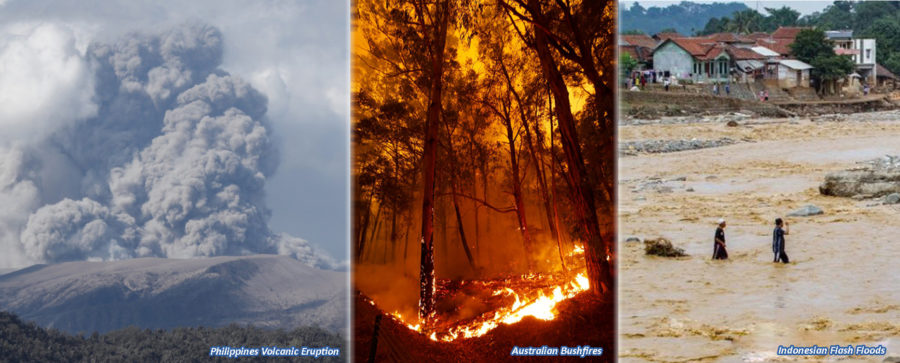CCA General Secretary expresses concern over the ongoing natural disasters in Asia

While expressing sympathy with the people in recent natural disaster-affected areas in Australia, Indonesia, and the Philippines, and appealing to churches and people of goodwill around the world to pray for all affected communities, the CCA General Secretary Dr Mathews George Chunakara urged for the pressing need to respond actively to the impending climate crisis with concrete measures.
The three major natural disasters that have struck Asia- the bushfires in Australia, the flash floods in Indonesia, and the volcanic eruption in the Philippines have caused unspeakable suffering to the lives and damage to the property of thousands of people.
“These ongoing natural disasters and their effects remind us of our Christian responsibility of working together in times of crises, and pooling together our efforts and resources not only to help victims, but also to mitigate such unforeseen happenings,” stated the CCA General Secretary.
“Our prayers must be supplemented with concrete actions, as such events become more and more commonplace as consequences of the climate crisis and its worst effects. The climate emergency and its subsequent suffering will only intensify if communities and their governments fail to heed the apocalyptic predictions and do not take sufficient measures to mitigate the potentially irreversible damage to the planet,” added Dr Chunakara.
The CCA General Secretary called upon the Asian churches to raise their voice as a clarion call to people from all walks of life so that the world’s climate emergency can be collectively averted.
Amidst the catastrophes and severe damages to life and property, the churches and church councils in Australia, Indonesia, and the Philippines have been actively responding to the crises by extending relief aid, emotional support, and volunteers to assist in disaster mitigation.
The CCA General Secretary also appealed to churches and people of goodwill around the world to pray for affected communities and donate to the relief efforts of churches and councils in the affected areas.
The full text of the CCA General Secretary’s statement can be accessed here.










